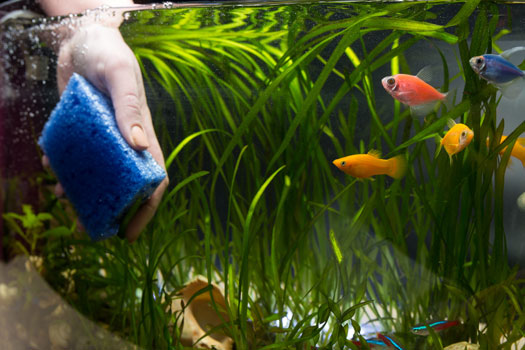Aytyapi Insights
Exploring the latest trends and updates in technology and lifestyle.
Aquarium Drama: Managing Fishy Relationships Like a Pro
Dive into Aquarium Drama! Discover expert tips for managing your fish's relationships and keeping the peace in your tank.
Top 5 Fish Compatibility Myths Debunked
When it comes to maintaining a peaceful aquarium, fish compatibility is often misunderstood. One prevalent myth is that all fish from the same region can get along. While it's true that some species share common habitats, factors such as individual temperament and territorial behaviors play a significant role in compatibility. For instance, the Spruce Pets explains that not all cichlids, even those from the same lake, can coexist harmoniously. In fact, it is crucial to research each species' specific needs and behaviors to ensure a peaceful community tank.
Another common misconception is that fish size determines compatibility. Many assume that larger fish can safely live with smaller species without any issues. However, this is not always the case; larger fish may view smaller ones as food rather than companions. According to Aquarium Co-Op, it is essential to consider both size and temperament when choosing tank mates. Always assess the behavior of both species to avoid unfortunate circumstances, such as bullying or predation, which can lead to a toxic environment.

How to Create a Harmonious Community Tank
Creating a harmonious community tank begins with careful planning. First, choose compatible fish species that share similar water parameters and temperaments. Consider starting with the best community fish such as guppies, tetras, and rasboras, which are known for their peaceful nature. Additionally, avoid overcrowding the tank to ensure that each fish has enough space, which will help minimize stress and aggression. Aim for a tank size that is appropriate for the species you select, and remember to factor in the adult size of your fish.
Incorporating the right aquatic environment is crucial to maintaining harmony. Provide plenty of hiding spots and territories using plants, rocks, and decorations. This encourages natural behaviors and reduces disputes among fish. Regular maintenance, such as water changes and filtering, is also essential to keep the water quality high, which contributes to the overall health and well-being of your fish. For more tips on creating a peaceful aquarium setup, check out this community tank guide.
Signs Your Aquarium Fish Are in Trouble: Managing Relationships Effectively
Ensuring the health and well-being of your aquarium fish is crucial for a thriving aquatic environment. Signs your aquarium fish are in trouble can manifest in various ways; recognizing these early warning signs is vital. For instance, if you observe your fish exhibiting unusual swimming patterns such as erratic movements, hiding excessively, or staying at the water surface, these could indicate stress or illness. Additionally, watch for changes in eating habits—refusing food can be a red flag. Maintaining a balanced ecosystem that considers tank mates' compatibility is essential for managing relationships effectively in your aquarium. Learn more about identifying sick fish.
Another critical aspect to consider is the physical appearance of your fish. If you notice discoloration, lesions, or increased fin clamping, these issues could signify underlying health problems. Managing relationships effectively extends beyond just individual fish; it includes monitoring the interactions between different species within your tank. Aggressive behaviors can lead to stress and vulnerability among your fish. To foster a peaceful aquarium environment, ensure that you choose tank mates that share similar temperaments and water requirements. For deeper insights on this topic, check out this resource: 10 Tips for Improving Tank Mate Selection.